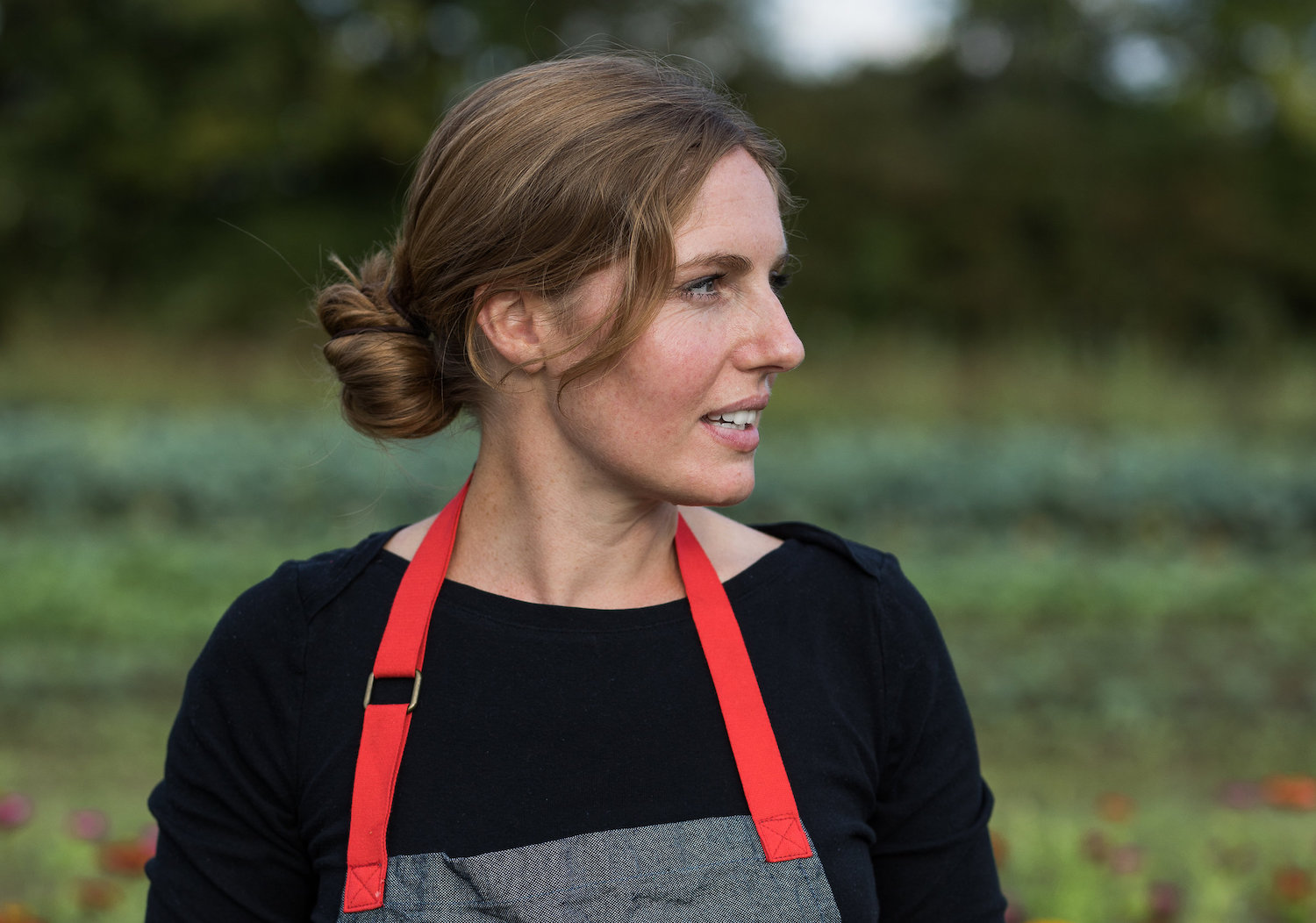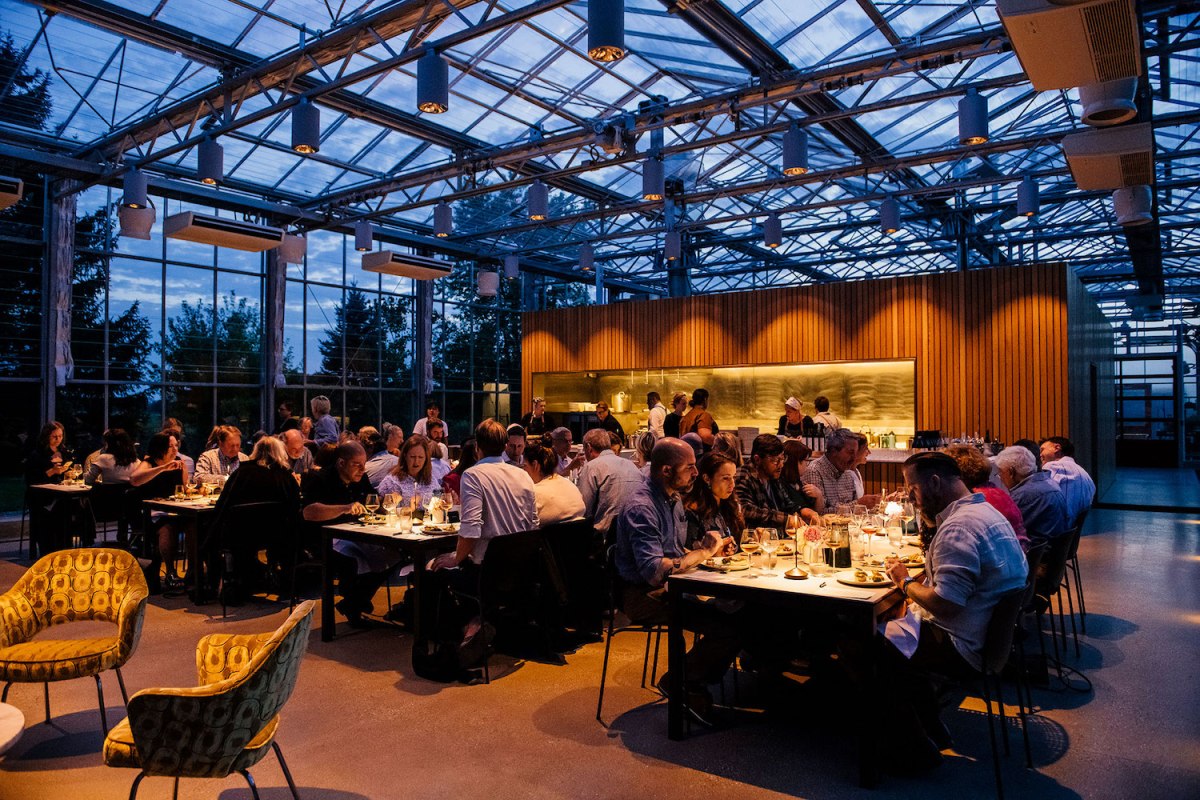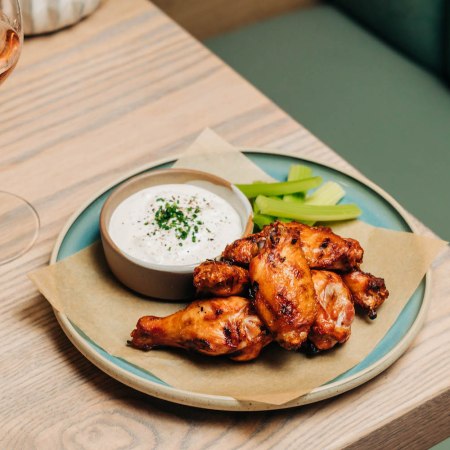Abra Berens is a current chef and former farmer, though it’s difficult to swallow the “former” once you’ve seen her in her element at Granor Farm, where she regularly hosts chef-driven, multi-course meals for attentive guests from all over the world. Berens assumes a deep involvement in what’s currently growing on this organic-certified farm in Three Oaks, Michigan, which produces vegetables, flowers, herbs and grains. Based on what’s available seasonally, she and her kitchen crew come up with a monthly Taste of Granor menu, which is tailored to the ingredients, instead of vice versa.
“Our style of cooking and style of business is that we really are a farm that cooks, as opposed to a restaurant,” Berens tells InsideHook. “We know exactly how many people are coming, we can tailor the menu to give them the best experience and that restriction frees up a lot of creativity in my mind. Taste Of Granor dinners are usually seven courses — they’re a mixture of individually plated and family style servings, and they all take place in our glass greenhouse. The menu will be mostly vegetables, though there’s usually meat in the main course, and additional ingredients like cheeses and fruit. That’s really the scope of it.”

As Berens explains, nothing about Granor is a “show farm,” and everything is purpose-built. So the greenhouse where the dinners are held is a real, working greenhouse used to grow plants year-round, a necessity in the northern Midwest. And she would know — Berens grew up on a farm in Michigan and clearly feels at home in returning to that experience. The brief time when Berens was away from Michigan centers mostly around her stint at the Ballymaloe Cookery School in Ireland, a 12-week intensive program that’s based on a 100-acre organic farm. Perhaps you’ll notice a pattern emerging.
“It’s the most fun way I can possibly imagine cooking,” she says. “Nothing is stagnant, the harvest list is always changing, every menu is different. We get to paint a picture of a particular place at a particular moment in time.” Granor’s tasting menu dinners are almost entirely composed of crops grown on the farm itself, and even though the three-and-a-half-hour tasting experiences the farm hosts are unique, the emphasis on local ingredients is fairly common in Three Oaks and the surrounding area, where a community of local chefs, farmers, brewers, winemakers and hoteliers is rapidly growing.
This Is the Fanciest (and Best) Recipe for Loaded Tater Tots You Will Ever Find
Oven-baked cheese and a buttermilk ranch drizzle make all the difference“It’s an interesting area because there are five or six distinct towns that get knit together in this understanding of the region of southwest Michigan,” she says. “New Buffalo is the biggest and has the largest population. It’s the first stop in Michigan on your way into the state, exit one. It has the easiest access to beach and is most people’s first foray into the area.” During the last few decades, these smaller towns like Three Oaks, New Buffalo and Berenson’s current hometown, Galena, have been seen simply as vacation destinations for people in big cities like Chicago or even Indiana. And that might still be true, to some extent. But at the same time, plenty of locals are moving back to Michigan and staying year-round.
Institutions like Granor Farm have helped the area establish its own presence, as has a pair of brand new boutique hotels, The Harbor Grand Hotel and the Marina Grand Resort, run by Collette and Robert Kemper, who decamped to Michigan years ago after working in luxury hotels in California. At Bentwood Tavern, the flagship restaurant at the Marina Grand, the chef prepares local produce, sometimes in the style of Berenson’s recipes in her first two cookbooks, Ruffage (2019) and Grist (2021). A standout dish was beans and greens in broth, not generally a meal that would eclipse a fish or a steak — and yet, particularly in the gray stormy weather, it did.

This year, Berens released a third cookbook, Pulp, which deals with all things fruit. Where Ruffage was concerned with vegetables and Grist focused on grains, beans, seeds and legumes, Pulp is filled with methods for preserving, preparing and appreciating all that fruit can bring to both sweet and savory dishes. “Pulp came out in April and is my love letter to Michigan fruits,” she says. “We are the second most agriculturally diverse state after California, and that’s because of how much fruit we grow. It was another thing I didn’t really realize was exceptional until I wasn’t around. Pulp is 50% fruit woven into savory items and 50% baking.”
Nothing illustrates her perspective on fruit better than the final course at Taste of Granor, one weekend in mid-October when I attended. Poached apples floated in an amaro sabayon, finished with the simplest granola crumble. No sugar glaze, no fancy sauce, no fine cake or crumbs. The apple was the star, and with it, so was Berens.
Every Thursday, our resident experts see to it that you’re up to date on the latest from the world of drinks. Trend reports, bottle reviews, cocktail recipes and more. Sign up for THE SPILL now.

























